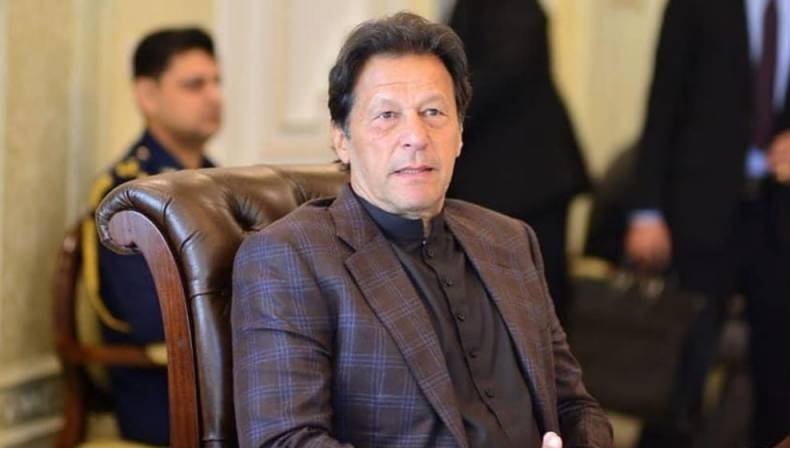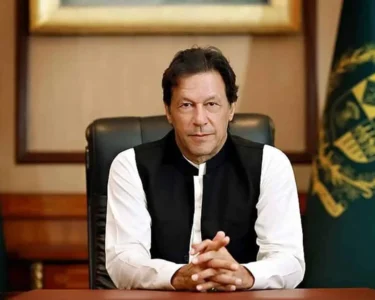In a dramatic turn of events, Imran Khan, the leader of Pakistan Tehreek-e-Insaf (PTI), has been taken into custody in Lahore following the judgment of the Toshakhana case by an Islamabad trial court. The said court has found Imran Khan guilty and sentenced him to three years of imprisonment, along with a fine of Rs100,000.
Relocation to Kot Lakhpat Jail
After the court’s ruling, the PTI’s provincial division in Punjab utilized its social media platform to announce the transfer of the former prime minister to Kot Lakhpat Jail. Additional District and Sessions Judge Humayun Dilawar delivered the verdict, amidst Imran Khan’s claims about the case’s admissibility and consistent requests for reassignment due to perceived judicial bias.
Reviewing Case Admissibility
A day after the Islamabad High Court’s (IHC) directive for Imran Khan’s legal team to reconsider the issue of case admissibility with the trial court, Justice Dilawar initiated discussions on the matter. Importantly, he urged Imran Khan’s legal team to present their closing arguments promptly, warning that the verdict would be announced on the same day, i.e., Saturday, if they failed to do so.
Absence of Senior Legal Representatives
The trial began at 8:30 am, but the senior legal representatives of Imran Khan were noticeably absent. The court had to take three recesses before finally delivering the verdict in the afternoon. Despite multiple opportunities, neither the defendant nor his senior counsel made an appearance. The PTI chief’s junior counsel informed the court that the defendant was engaged in proceedings before another judicial forum.
Must Read:
Imran Khan Faces Another Setback as Former Federal Minister Ali Zaidi Resigns from PTI and Politics
Verdict and Charges
In his judicial pronouncement, Justice Dilawar affirmed the validity of the charges brought against Imran Khan. The trial court’s decision found the PTI chief guilty of participating in corrupt practices and providing false information to the Election Commission of Pakistan (ECP). The Islamabad inspector-general of police (IGP) was specifically directed to expedite the execution of the arrest warrants.
The Toshakhana Case Details
The Toshakhana case was initiated by the Election Commission of Pakistan (ECP) against Imran Khan, alleging that he deliberately concealed gifts obtained during his tenure as the prime minister and did not declare them to the Toshakhana.
Imran Khan’s Response
Having presented their concluding arguments during previous hearings, the ECP’s legal counsel, Amjad Parvez, claimed that Imran Khan had admitted to the allegations in his statement to the court, eliminating the need for further prosecution. Parvez argued that the defendant had acknowledged receiving gifts from the Toshakhana and attempted to justify this by referring to his tax returns. However, the legal representative contended that the tax returns were irrelevant to the case. Additionally, the PTI chief submitted a list of four witnesses who were tax consultants, an assertion that was ultimately rejected.
Questioning Lack of Assets
Parvez further emphasized the implausibility of the PTI chairman’s alleged lack of assets, such as cars or jewelry. He questioned, “Can we consider a situation where the possessions of the PTI chairman were limited to just four goats over the course of four years as acceptable?”
Arrest and Subsequent Events
Following the court’s decision, news of Imran Khan’s arrest spread from the PTI leadership in Punjab. Interestingly, unlike previous incidents where PTI supporters would gather at Zaman Park in anticipation of an arrest, this time, the arrest took place without resistance.
Mut Read:
Imran Khan’s TikTok Debut: A Social Media Sensation
Previous Detention and Response
This arrest follows Imran Khan’s earlier detention on May 11 when he was apprehended by paramilitary Rangers at an Islamabad court. The arrest triggered widespread protests and disturbances across the nation, prompting a strong response from the civil-military establishment, which pledged to address the situation assertively, especially in response to attacks on military installations.
Imran Khan’s Legal Actions
Simultaneously, Imran Khan once again approached the Supreme Court in an effort to move the Toshakhana case to a different judicial forum. His persistent challenge to the jurisdiction of the additional district and sessions judge to preside over the case, along with other grievances against the court’s denial of his right to a defense, has been a recurring theme in his legal strategy.
Conclusion
The apprehension of Imran Khan following the Toshakhana case verdict has sent shockwaves through the political landscape of Pakistan. As the PTI leader faces imprisonment and legal battles, the nation watches with bated breath for further developments in this unfolding saga.




